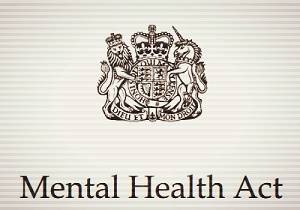MHA 1983: The law informs people with mental health problems what their rights are on:
- Assessment and treatment in hospital
- Pathways into hospital (civil or criminal)
- Treatment within the general community
Those who receive inpatient treatment on psychiatric wards have agreed to go into hospital.
They do so as informal patients and are also known as voluntary patients.
But, around 50% of inpatients are in a hospital without their agreement as formal patients. They will have been detained under the Mental Health Act 1983. You may be more familiar with the term of ‘getting sectioned’.
You lose certain rights if you are a formal patient including the right to leave hospital freely. So, knowing your rights under the Mental Health Act is important for those in this situation.
What the Mental Health Act Covers
There are many different sections to the Mental Health Act. Each section contains information on:
- Your rights if you get detained in hospital against your wishes.
- Your family’s rights if you get detained.
- Your rights if you get detained in hospital and also part of the criminal justice system.
- Your rights around consent to treatment when you get detained.
- Your rights when you are leaving hospital (including how to have your section lifted and care planning).
- Your rights if you get treated in the community (e.g. receiving section 117 aftercare or on a community treatment order (CTO)).
Other Important Laws to Know About
There are other key pieces of legislation that apply to a person with a mental health problem living in England or Wales. They help to set out some of your discrimination rights and protect you in the United Kingdom.
- Equality Act 2010
- Mental Capacity Act 2005
- Care Act 2014 (applies to England)
- Social Services and Wellbeing (Wales) Act 2014 (applies to Wales)
- Human Rights Act 1998
- Data Protection Act 2018
How to get Legal Support
 You can also contact these organisations for further legal information:
You can also contact these organisations for further legal information:
- The Mind Legal Line
- A local Law Centre
- Civil Legal Advice
- Citizens Advice
- A private solicitor.
In some cases you may have legal entitlement to an advocate. That is a professional who can help you understand your full rights on the Mental Health Act.

